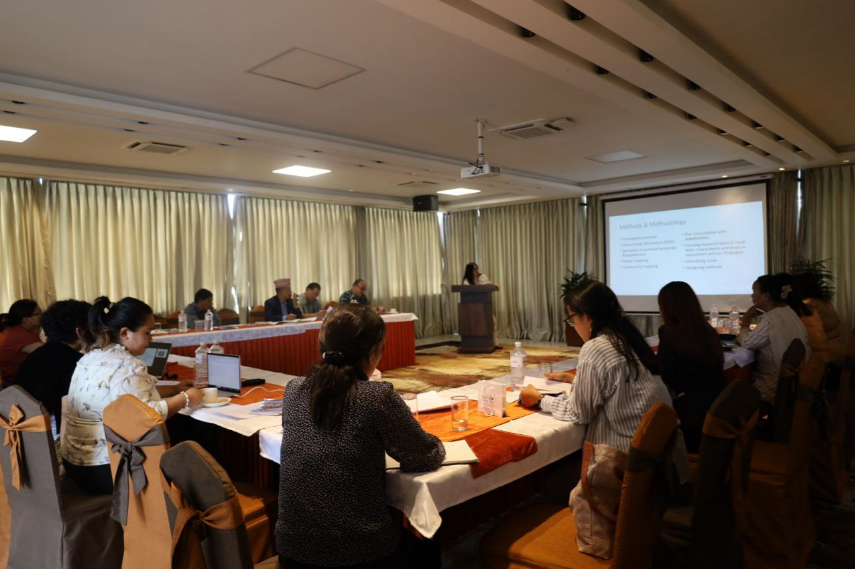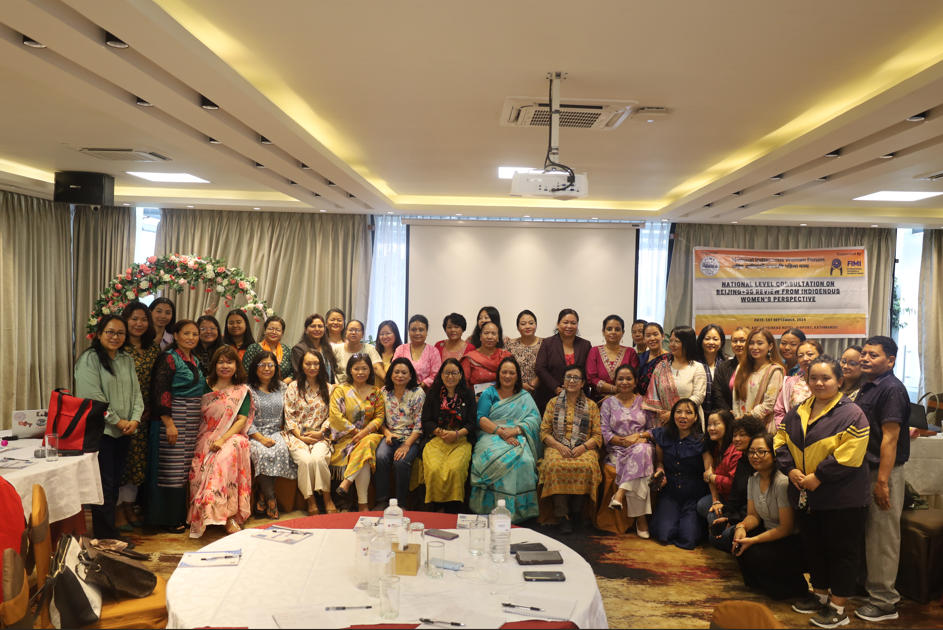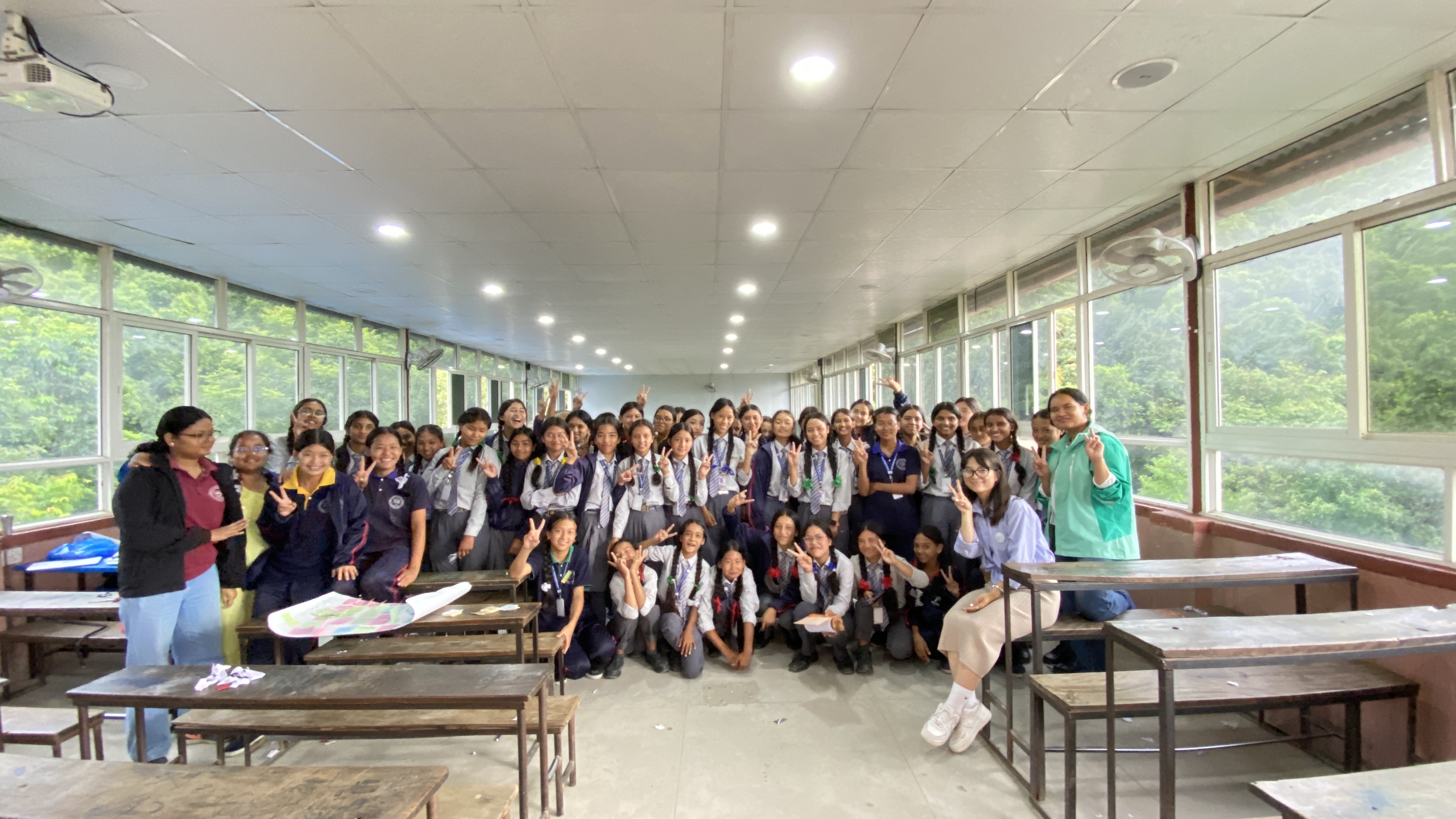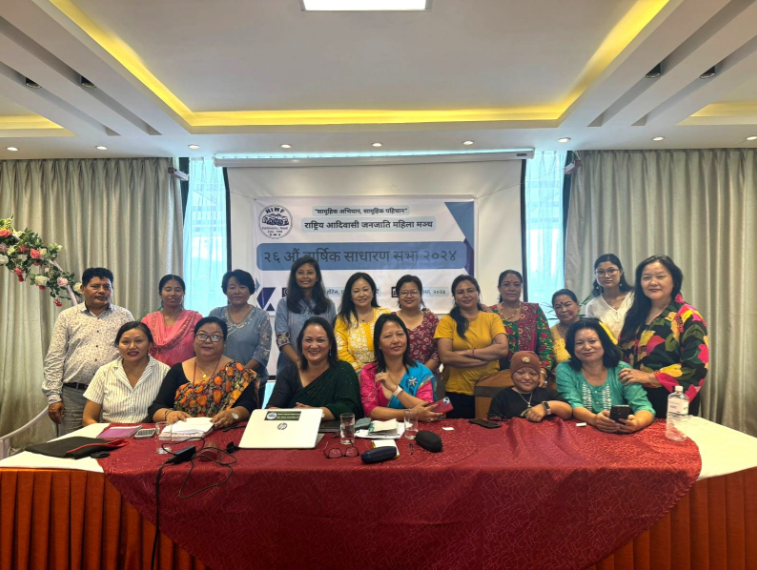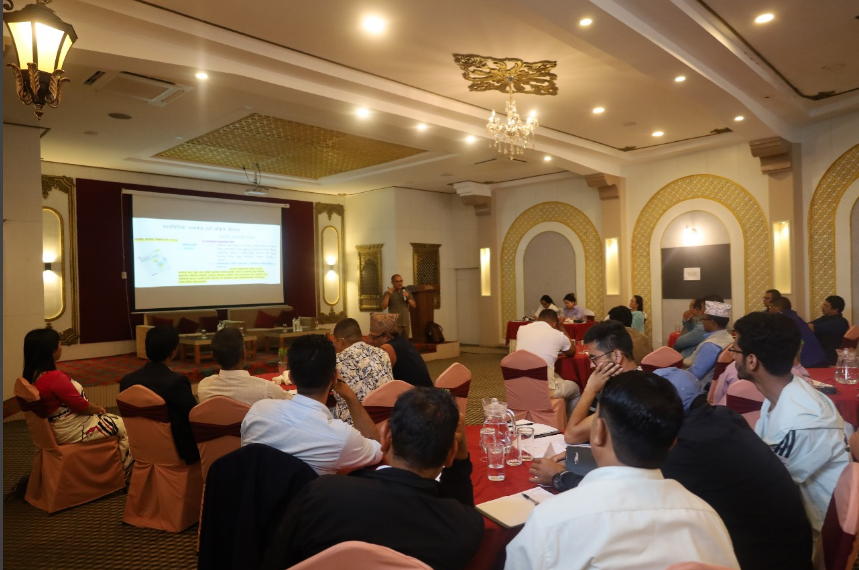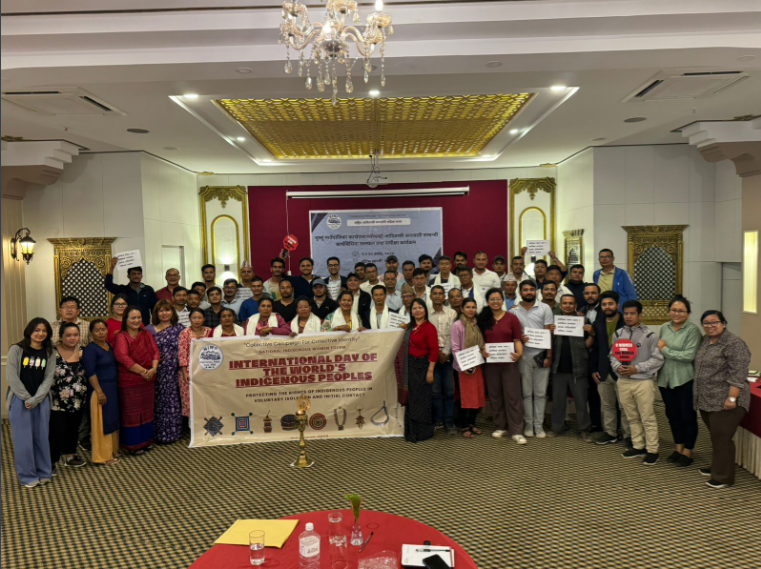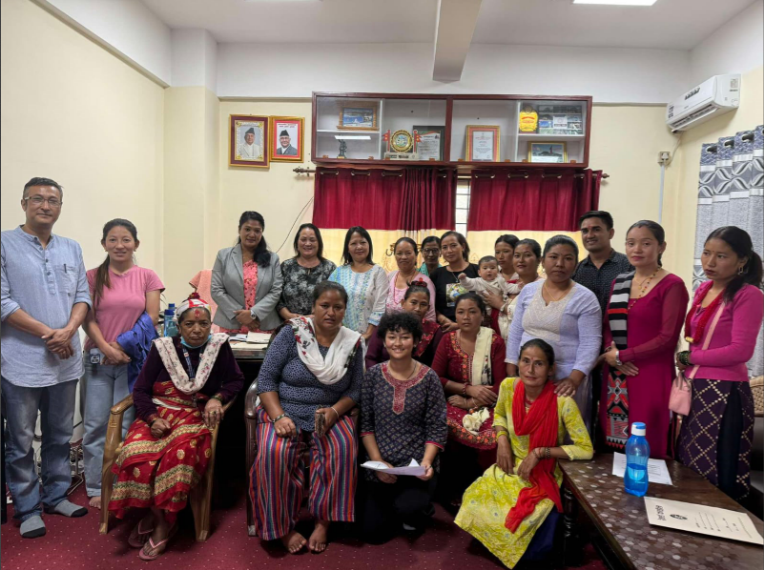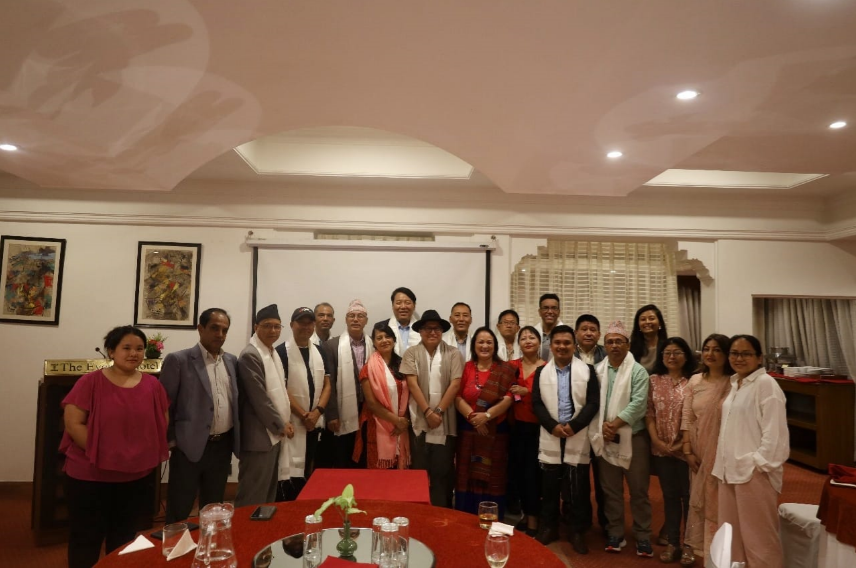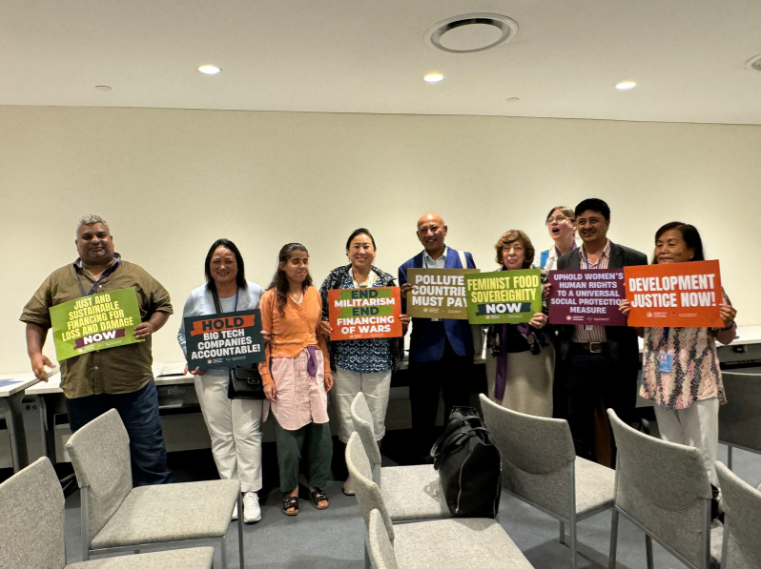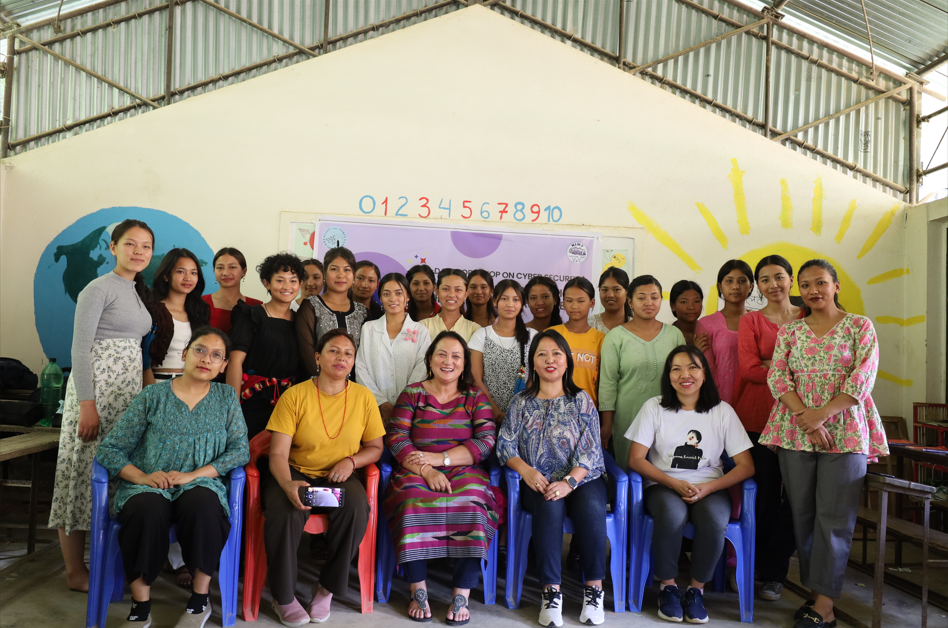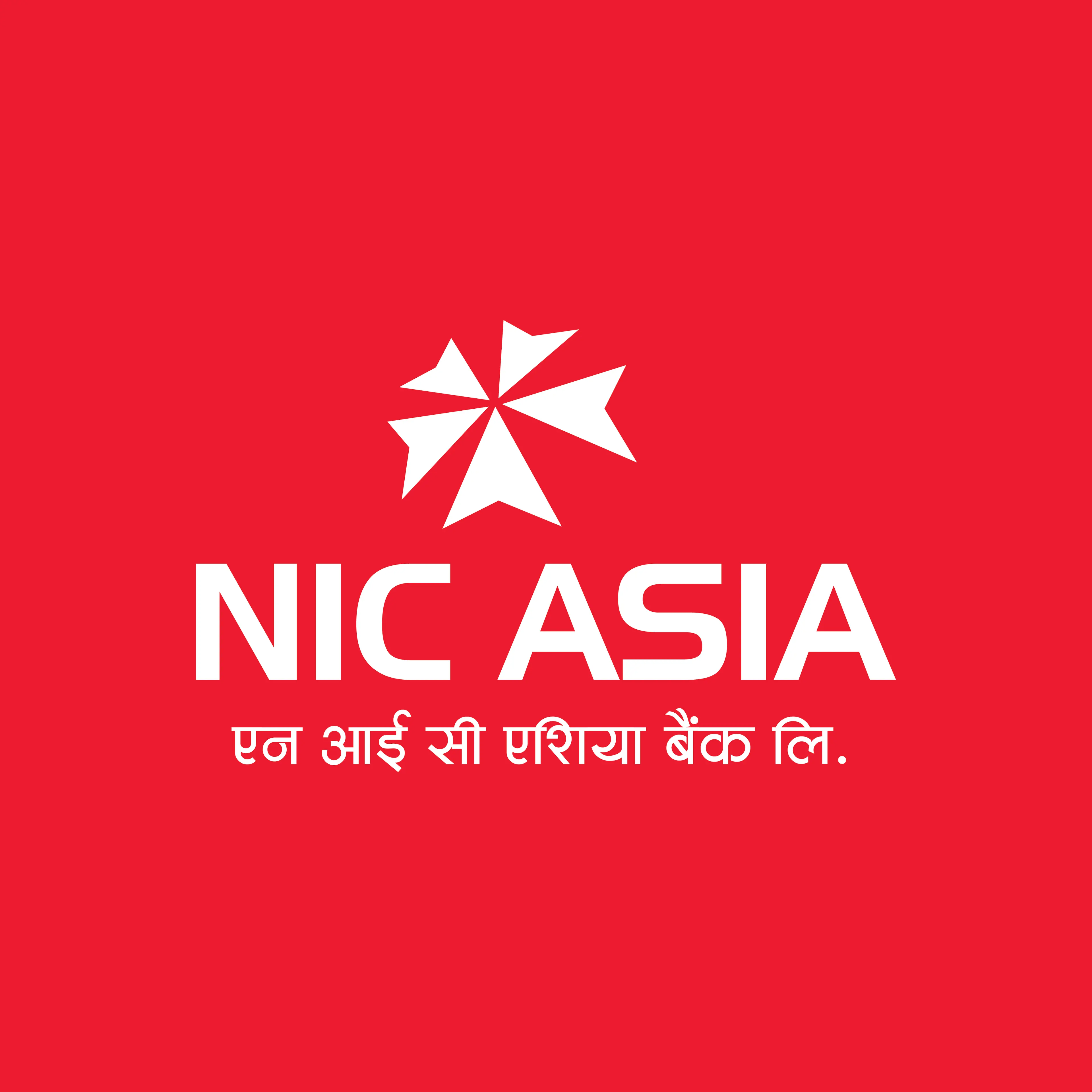
On 8th September 2024, the National Indigenous Women Forum (NIWF) held a round table discussion to address the pressing issue of Indigenous Migrant Women, with a specific focus on the challenges faced by Indigenous Returnee Migrant Women (IRMW). The event was part of NIWF’s ongoing efforts to advocate for more inclusive policies and practices that recognize the unique circumstances of Indigenous women. The discussion was facilitated by Ms. Sabnam Lama and included presentations and an open dialogue between experts and participants. Ms. Mala Rai presented the key findings of NIWF’s research on IRMW, a study that used Feminist Participatory Action Research (FPAR). This approach ensured that the research was rooted in the lived experiences and voices of the women themselves, making their stories central to understanding the complex challenges they face. FPAR emphasizes collaboration with participants and empowers marginalized communities to play an active role in shaping research outcomes, rather than being passive subjects. Through this methodology, Ms. Rai and her team were able to capture the depth of the struggles faced by IRMW upon their return to Nepal, including economic instability, social isolation, and a severe lack of reintegration support.
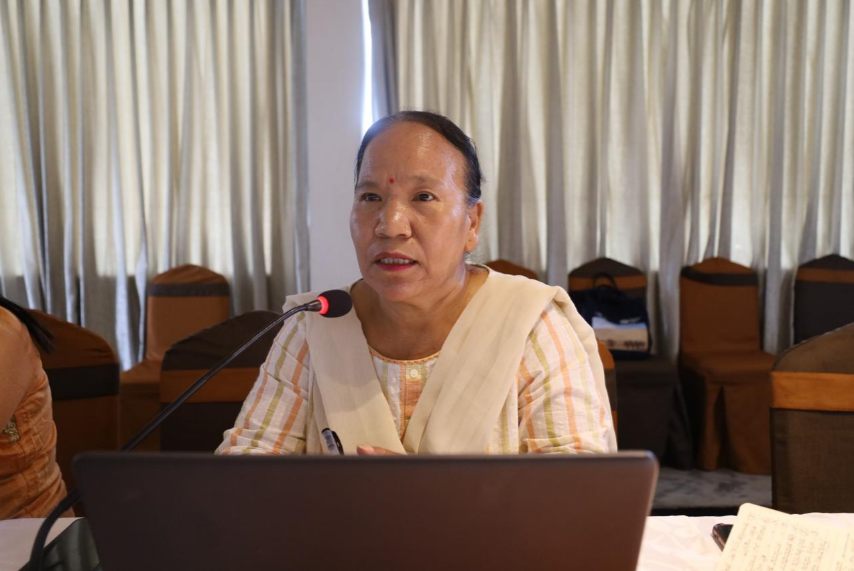 The session concluded with an open floor discussion, where participants, including activists, policymakers, and Indigenous women, provided feedback on the presentations. They shared experiences, discussed possible interventions, and offered recommendations. Many participants echoed the need for a more nuanced understanding of the intersectionality of gender, indigeneity, and migration in policy formulations. The discussion underscored the importance of developing comprehensive support systems for IRMW, such as mental health services, financial literacy training, and community-driven reintegration programs.
The session concluded with an open floor discussion, where participants, including activists, policymakers, and Indigenous women, provided feedback on the presentations. They shared experiences, discussed possible interventions, and offered recommendations. Many participants echoed the need for a more nuanced understanding of the intersectionality of gender, indigeneity, and migration in policy formulations. The discussion underscored the importance of developing comprehensive support systems for IRMW, such as mental health services, financial literacy training, and community-driven reintegration programs.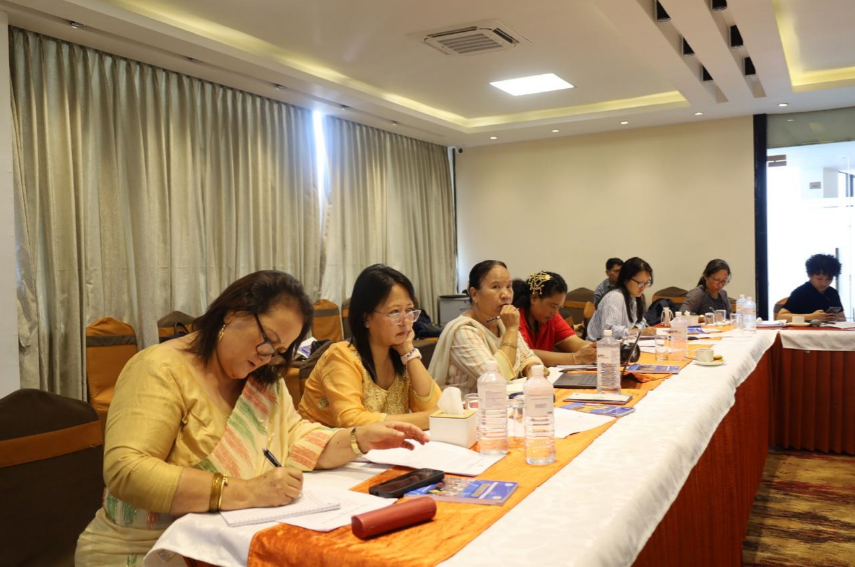
On 1st September, National Indigenous Women Forum (NIWF) held a program titled "National Level Consultation on Beijing +30 Review from Indigenous Women's Perspectives." The program was facilitated by NIWF's Executive Director, Ms. Dwarika Thebe. The event commenced with a warm welcome and opening remarks from NIWF's Chairperson, Ms. Suni Lama, who took the opportunity to highlight the organization's extensive work and achievements over its 26-year history, emphasizing its commitment to Indigenous Women's rights and issues.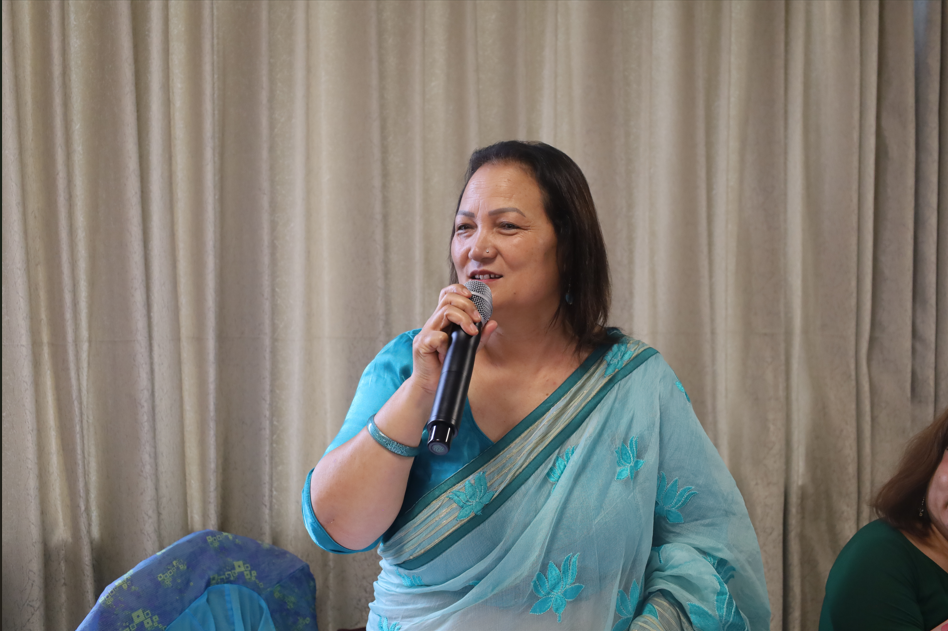 Ms. Chanda Thapa, the resource person for the event, then took the floor to deliver a detailed and insightful briefing on the 12 critical areas outlined in the Beijing +30 framework. Her presentation was both informative and analytical, providing the participants with a clear understanding of the global priorities under the Beijing +30 agenda. Ms. Thapa paid particular attention to the three key areas that NIWF plans to prioritize in its ongoing and future efforts: "Women in Power and Decision-Making," "Violence Against Women," and "Women in the Environment." She meticulously outlined the gaps and shortcomings in the review report submitted by the Government of Nepal, emphasizing how these deficiencies disproportionately affect Indigenous women. Her analysis brought to light the unique perspectives and needs of Indigenous Women within the broader Beijing +30 context, advocating for a more inclusive and representative approach in policy formulation and implementation.
Ms. Chanda Thapa, the resource person for the event, then took the floor to deliver a detailed and insightful briefing on the 12 critical areas outlined in the Beijing +30 framework. Her presentation was both informative and analytical, providing the participants with a clear understanding of the global priorities under the Beijing +30 agenda. Ms. Thapa paid particular attention to the three key areas that NIWF plans to prioritize in its ongoing and future efforts: "Women in Power and Decision-Making," "Violence Against Women," and "Women in the Environment." She meticulously outlined the gaps and shortcomings in the review report submitted by the Government of Nepal, emphasizing how these deficiencies disproportionately affect Indigenous women. Her analysis brought to light the unique perspectives and needs of Indigenous Women within the broader Beijing +30 context, advocating for a more inclusive and representative approach in policy formulation and implementation.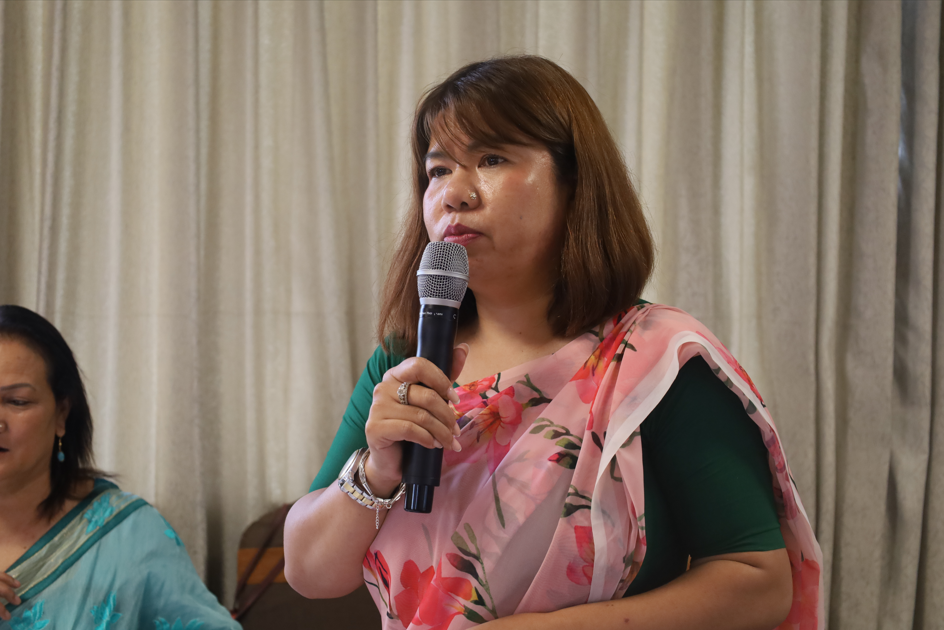 Following the briefing, the participants were divided into three focused groups, each tasked with delving deeply into one of the critical areas identified by NIWF. These group discussions were intensive and collaborative, as participants explored the specific challenges, opportunities, and strategies related to their assigned themes. The discussions were rich with diverse viewpoints and grounded in the lived experiences of Indigenous women. The participants considered various factors, such as cultural, social, and economic barriers, that influence the roles and status of Indigenous women in each of these areas. After thorough deliberations, each group presented their findings to the larger assembly. These presentations sparked further discussions and provided a platform for a thoughtful exchange of ideas among all participants. The collective insights from these group discussions were not only informative but also instrumental in identifying actionable steps that NIWF can take moving forward.
Following the briefing, the participants were divided into three focused groups, each tasked with delving deeply into one of the critical areas identified by NIWF. These group discussions were intensive and collaborative, as participants explored the specific challenges, opportunities, and strategies related to their assigned themes. The discussions were rich with diverse viewpoints and grounded in the lived experiences of Indigenous women. The participants considered various factors, such as cultural, social, and economic barriers, that influence the roles and status of Indigenous women in each of these areas. After thorough deliberations, each group presented their findings to the larger assembly. These presentations sparked further discussions and provided a platform for a thoughtful exchange of ideas among all participants. The collective insights from these group discussions were not only informative but also instrumental in identifying actionable steps that NIWF can take moving forward.
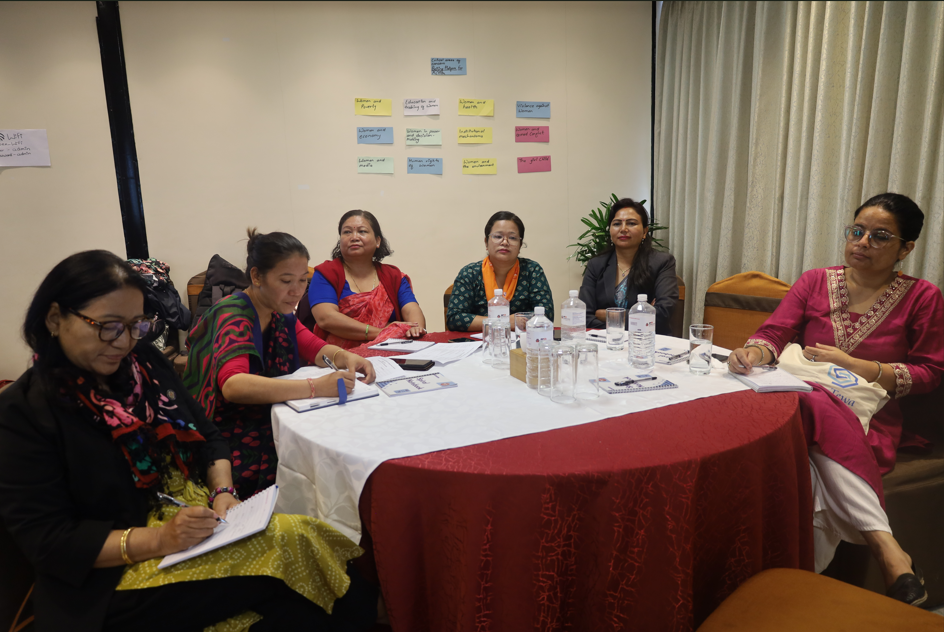 This event marked a pivotal moment in NIWF's ongoing efforts to amplify the voices of Indigenous Women and ensure their concerns and aspirations are adequately represented in policy discussions. It reaffirmed NIWF's role as a leading advocate for Indigenous Women’s rights and highlighted the importance of inclusive and participatory approaches in addressing the complex and intersectional challenges faced by Indigenous Women in Nepal and beyond. As NIWF continues to engage with the Beijing +30 process, the outcomes of this consultation will serve as a foundational element in their work, guiding their efforts to achieve meaningful and lasting change for Indigenous Women across all spheres of life.
This event marked a pivotal moment in NIWF's ongoing efforts to amplify the voices of Indigenous Women and ensure their concerns and aspirations are adequately represented in policy discussions. It reaffirmed NIWF's role as a leading advocate for Indigenous Women’s rights and highlighted the importance of inclusive and participatory approaches in addressing the complex and intersectional challenges faced by Indigenous Women in Nepal and beyond. As NIWF continues to engage with the Beijing +30 process, the outcomes of this consultation will serve as a foundational element in their work, guiding their efforts to achieve meaningful and lasting change for Indigenous Women across all spheres of life.
On September 1, 2024, National Indigenous Women Forum (NIWF), in collaboration with Focus for Indigenous Girls (FIG) and with the support of MADRE, organized a 1-day Child Marriage Awareness Workshop at Sankhu Palubari Community School in Shankharapur Municipality, Kathmandu. This workshop aimed to raise awareness among young Indigenous girls about the impacts and risks associated with child marriage while fostering a supportive environment for them to share their thoughts and aspirations.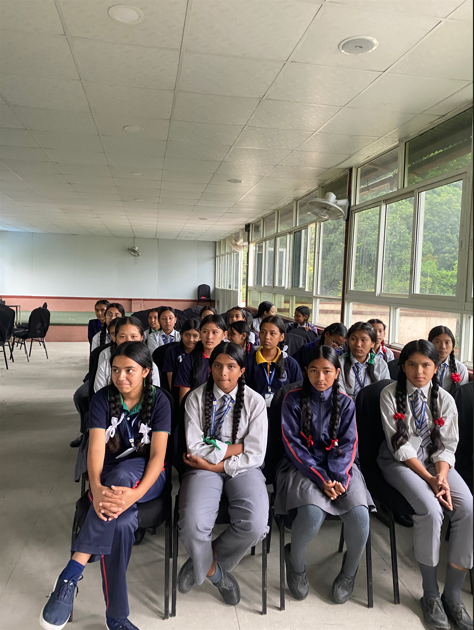
The workshop kicked off with a storytelling session, where participants listened to the story of a young girl grappling with the challenges of child marriage. After the storytelling session, the girls were divided into small groups for discussions. These groups were asked to engage in a thoughtful analysis of the story’s outcomes and explore how the girl's life might have been different had she been empowered to make her own decisions—particularly the decision to continue her education. The next activity, 'Art and Expression,' encouraged participants to use art supplies to create posters, drawings, or collages representing their aspirations. Each girl then explained her artwork to the group, reflecting on how child marriage could affect their goals and future ambitions. A critical component of the workshop was a presentation delivered by Ms. Manika Magar, member of Focus for Indigenous Girls (FIG). Ms. Magar’s presentation delved into the various risks and consequences of child marriage, both at a personal and societal level. She highlighted the negative health impacts associated with early pregnancies, including the increased risks of maternal and infant mortality, and the physical and emotional toll it takes on young girls. She also discussed the legal framework surrounding child marriage in Nepal, emphasizing that, although child marriage is illegal, it still persists in many communities due to entrenched cultural norms and economic pressures.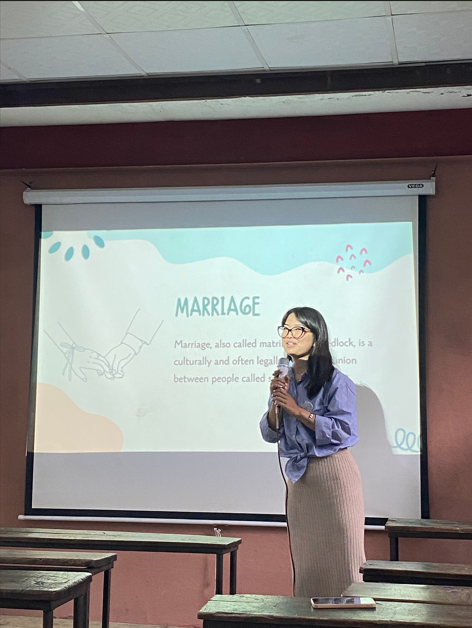
The workshop concluded with a sense of solidarity and empowerment among the participants. Through the combination of storytelling, discussion, and creative expression, the girls were not only educated about the dangers of child marriage but were also given the space to express their dreams and aspirations for the future.
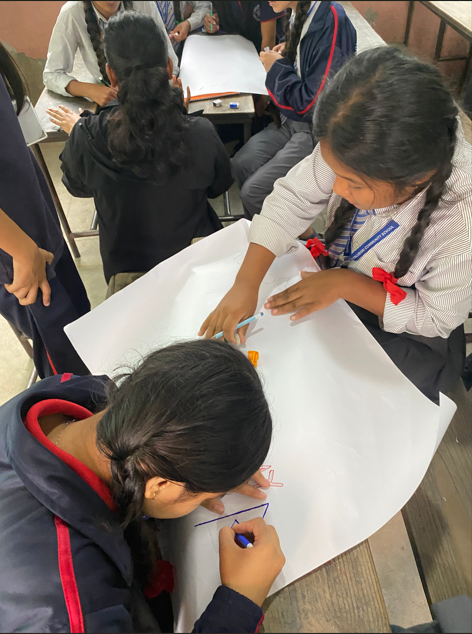
The success of this workshop was evident in the feedback from the participants, who expressed gratitude for being part of a space where they could freely discuss their thoughts and share their personal goals. They left with a stronger understanding of their rights and the importance of education, armed with the knowledge to challenge the status quo in their communities. Through this impactful initiative, NIWF, FIG, and MADRE demonstrated their commitment to empowering Indigenous girls, fostering resilience, and contributing to the ongoing fight against child marriage in Nepal.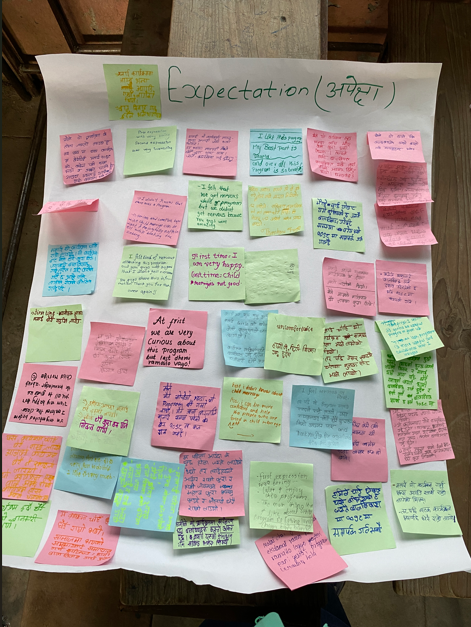
On August 13th, 2024, National Indigenous Women Forum (NIWF) convened its 26th Annual General Meeting (AGM), marking a significant milestone in the organization’s commitment to advocating for the rights, of Indigenous Women and Girls across the nation. This event, held with much anticipation and participation from board members and general members, was a testament to NIWF’s growing influence and its pivotal role in addressing issues critical to Indigenous Communities. The AGM was chaired by Ms. Suni Lama, the Chairperson of NIWF, whose leadership has been instrumental in steering the organization through various challenges and achievements. In her opening remarks, Ms. Lama emphasized the importance of unity, resilience, and continued advocacy in the face of the ongoing struggles that Indigenous Women face, particularly in the realms of social justice, environmental sustainability, and cultural preservation. She also highlighted the importance of collective action in overcoming the systemic barriers that hinder the progress of Indigenous Communities.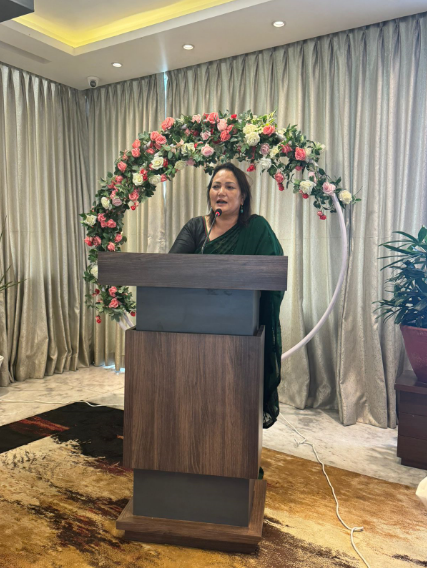
Following the Chairperson's address, Ms. Man Maya Tamang, the General Secretary of NIWF, presented the Annual Progress Report for the fiscal year 2080-81. In her detailed presentation, Ms. Tamang highlighted the key achievements of the organization over the past year, which included successful advocacy campaigns, capacity-building programs, and partnerships that have significantly enhanced the visibility and impact of Indigenous Women in various sectors. She also acknowledged the challenges that NIWF faced, such as limited resources and the need for greater community engagement, but emphasized that these obstacles only strengthened the organization’s resolve to continue its mission. Ms. Tamang provided specific examples of NIWF's initiatives, including the implementation of grassroots projects aimed at empowering Indigenous Women through education, economic opportunities. She also noted the organization’s role in influencing policy at both local and national levels, particularly in areas related to Indigenous rights, climate change, and biodiversity conservation. The report underscored NIWF's commitment to ensuring that the voices of Indigenous Women are heard and respected in all spheres of society.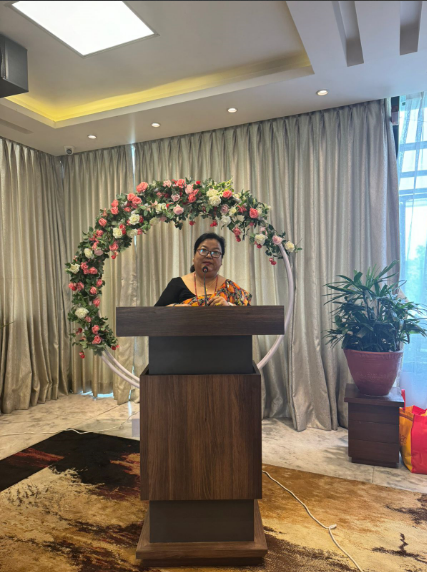
Following the presentation of the Annual Progress Report, Ms. Sushila Maya Gole, the Treasurer of NIWF, took the stage to deliver the Annual Financial Report. Her presentation provided a comprehensive overview of the organization’s financial health, including a breakdown of expenditures, funding sources, and financial management strategies that have been employed to ensure the sustainability of NIWF’s operations. Ms. Gole highlighted the importance of financial transparency and accountability, noting that the careful management of resources has enabled the organization to expand its reach and deepen its impact. 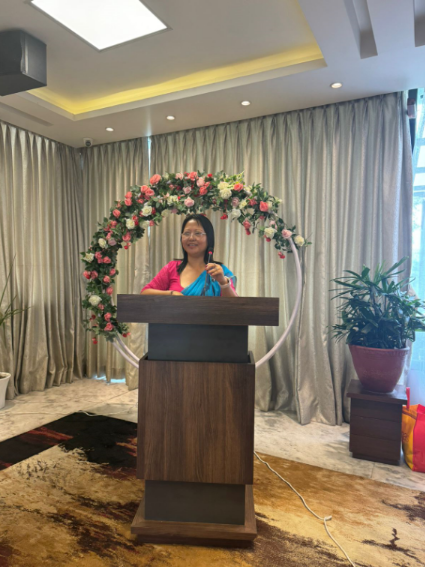 Ms. Gole detailed the various funding streams that NIWF has secured over the past year, including grants from international donors, contributions from members, and revenue from fundraising activities. She also discussed the organization’s expenditures, which were primarily directed toward program implementation, capacity-building initiatives, and community outreach efforts. Additionally, she outlined the financial strategies that NIWF plans to adopt in the coming year, with a focus on diversifying funding sources and enhancing financial management practices to support the organization’s growth.
Ms. Gole detailed the various funding streams that NIWF has secured over the past year, including grants from international donors, contributions from members, and revenue from fundraising activities. She also discussed the organization’s expenditures, which were primarily directed toward program implementation, capacity-building initiatives, and community outreach efforts. Additionally, she outlined the financial strategies that NIWF plans to adopt in the coming year, with a focus on diversifying funding sources and enhancing financial management practices to support the organization’s growth.
The AGM also addressed several important administrative matters, including the appointment of a new auditor to oversee the financial activities of the organization in the upcoming fiscal year. This decision was made to ensure that NIWF continues to uphold the highest standards of transparency and accountability in its financial reporting. The appointment of the new auditor was unanimously approved by the members, reflecting the organization’s commitment to maintaining the trust of its stakeholders. In addition to financial and administrative discussions, the meeting also provided an opportunity for members to reflect on the strategic goals and programmatic priorities for the next fiscal year. The discussion centered on the need to strengthen advocacy efforts for Indigenous rights, particularly in the areas of land rights, cultural preservation, and access to education and healthcare. Members also emphasized the importance of expanding NIWF’s partnerships with other organizations and stakeholders to amplify the impact of its work.
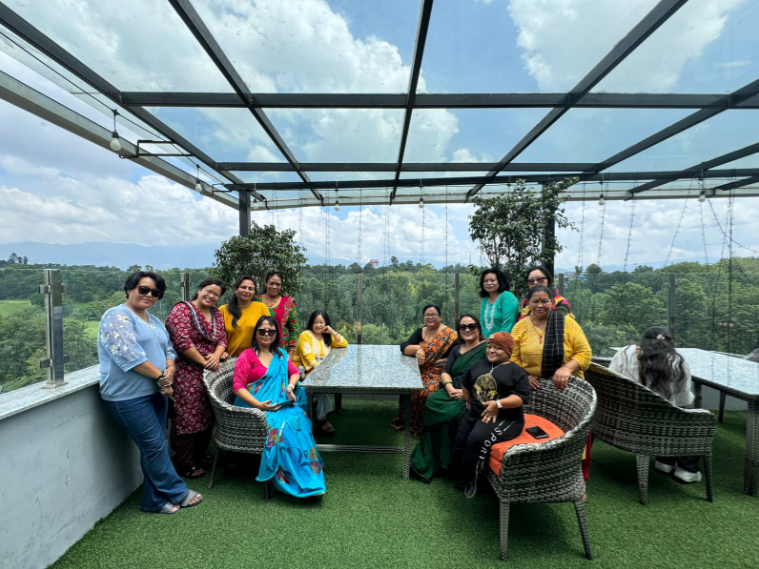
Following the successful first day, the National Indigenous Women Forum (NIWF) continued its impactful two-day training on August 10, 2024, focusing on the discussion and review of the Bhumlu Indigenous Workplan Policy with members of Bhumlu Rural Municipality. The second day of the training was facilitated by Ms. Dwarika Thebe, the Executive Director of NIWF, who brought her extensive experience and leadership to guide the sessions. 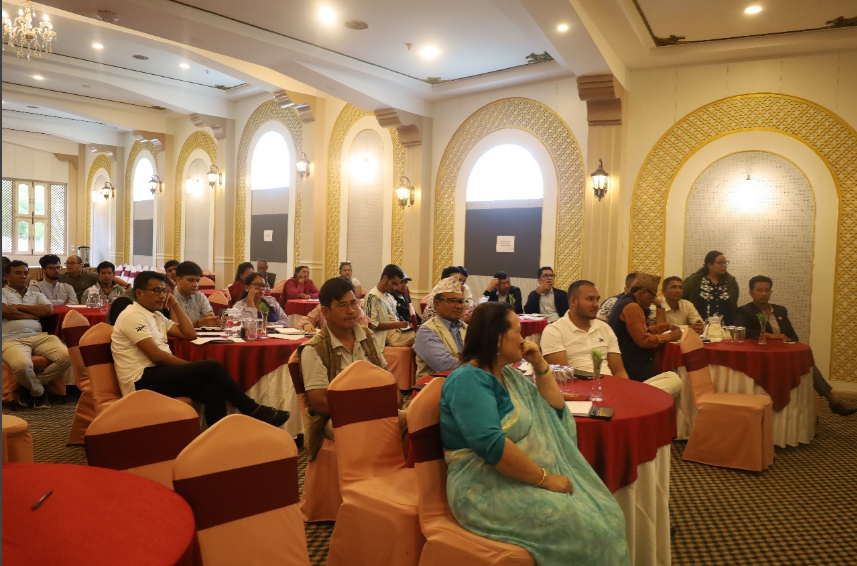
The day began with a compelling presentation by Mr. Kamal Sampang Rai, who addressed the critical topic of biodiversity, particularly in the context of climate change. Mr. Rai's presentation shed light on how Nepal's rich biodiversity is being increasingly threatened by the effects of climate change. He discussed the various ways in which rising temperatures, changing precipitation patterns, and habitat loss are impacting flora and fauna across the country. What made Mr. Rai's presentation particularly engaging was his exploration of the deep connection between Indigenous Peoples and biodiversity. He emphasized that Indigenous communities have a profound understanding of their natural environment, which is rooted in centuries of traditional knowledge and practices. This knowledge not only helps preserve biodiversity but also offers sustainable ways to protect and manage natural resources. Mr. Rai’s insights highlighted the invaluable role that Indigenous Peoples play in the global effort to combat climate change and preserve biodiversity.
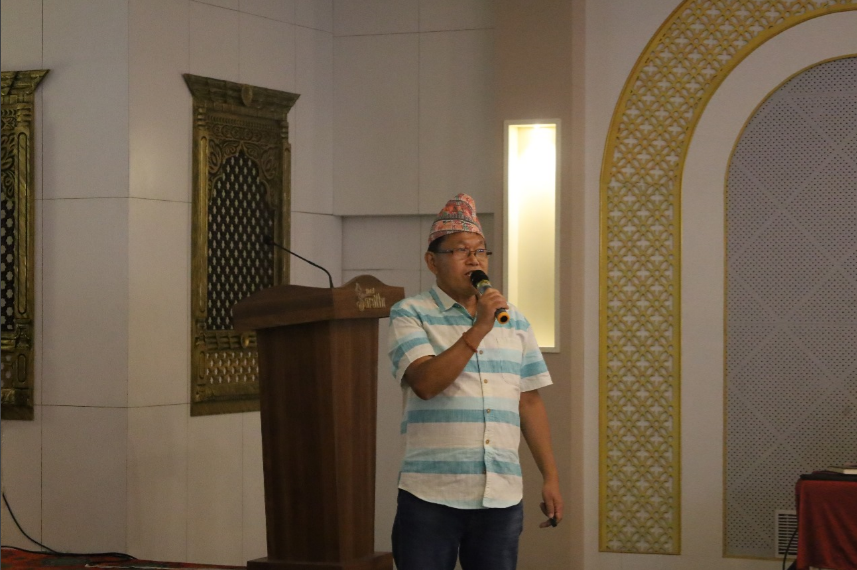
The discussion on climate change continued with an in-depth presentation by Mr. Bijay Kumar Singh, who focused on the specific impacts of climate change on Indigenous communities. Mr. Singh articulated how these communities are disproportionately affected by environmental changes, given their close relationship with the land and natural resources. He outlined several critical areas where climate change has disrupted traditional practices, including agriculture, fishing, and hunting. These disruptions have threatened food security, exacerbated poverty, and increased the vulnerability of Indigenous communities to natural disasters such as floods and landslides. Mr. Singh's presentation underscored the urgent need for targeted climate adaptation strategies that are culturally sensitive and community-driven, ensuring that Indigenous voices are central to policy-making processes.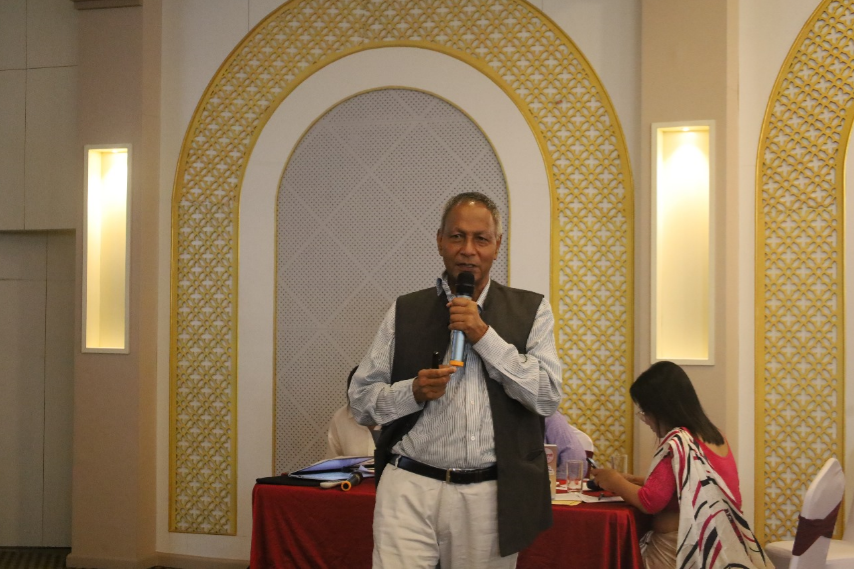
The final presentation of the day was delivered by Mr. Hom Yamphu, who provided an informative overview of key international frameworks that are vital for safeguarding the rights of Indigenous communities. Mr. Yamphu focused on the Universal Periodic Review (UPR), the Convention on Biological Diversity (CBD), the United Nations Declaration on the Rights of Indigenous Peoples (UNDRIP), and ILO Convention 169. He explained how these international frameworks could be effectively integrated into the governance procedures of Bhumlu Rural Municipality. Mr. Yamphu discussed the relevance of each framework in protecting the rights of Indigenous Peoples, emphasizing how these international standards offer a robust foundation for local policies and practices. He also provided practical guidance on how local authorities could implement these frameworks, ensuring that the rights of Indigenous communities are respected and upheld.
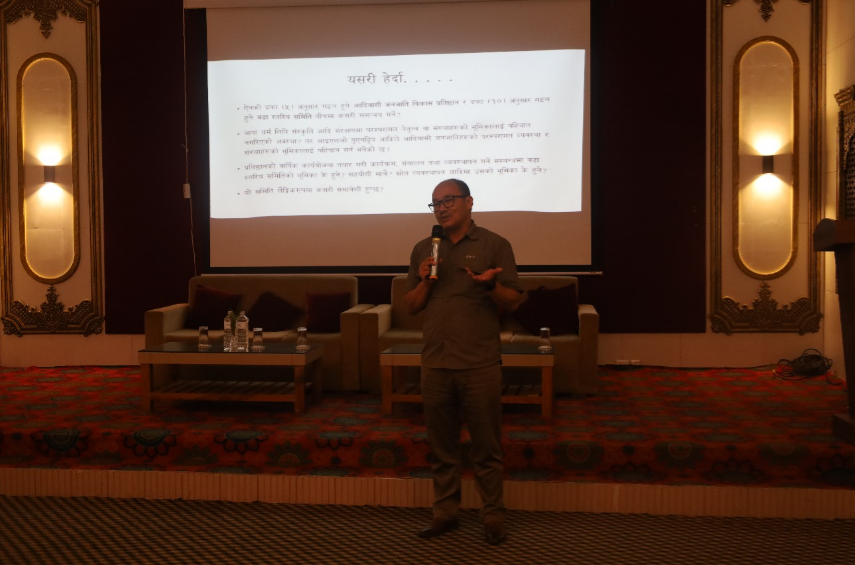
The training concluded with heartfelt speeches from two representatives of Bhumlu Rural Municipality. They expressed their sincere gratitude to NIWF for organizing such a comprehensive and enlightening event. The representatives shared how the training had significantly deepened their understanding of CEDAW General Recommendation 39, as well as other critical international frameworks like UPR, CBD, UNDRIP, and ILO Convention 169.
The second day of the training was a resounding success, building on the momentum of Day 1 and leaving participants with a deeper understanding of the challenges and opportunities in advancing the rights of Indigenous Peoples. The event not only facilitated knowledge sharing but also strengthened the resolve of local leaders to implement policies that honor and protect the heritage, rights, and well-being of Indigenous communities.
On August 9, 2024, the National Indigenous Women Forum (NIWF) inaugurated a significant two-day training program aimed at fostering dialogue and reviewing the Bhumlu Indigenous Workplan Policy with members of the Bhumlu Rural Municipality. The event marked a crucial step in empowering local leaders and stakeholders to better understand and implement policies that support Indigenous communities, particularly focusing on women and girls. The training commenced with a warm welcome from Ms. Suni Lama, the Chairperson of NIWF. Ms. Lama expressed her gratitude to all the participants for their presence and their commitment to the cause of Indigenous rights. Ms. Saraswati Sherpa, Program Officer at NIWF, facilitated the training. With her experience and knowledge, she set the tone for the event, highlighting the objectives of the training and the critical role it plays in strengthening local governance and policy implementation concerning Indigenous rights.
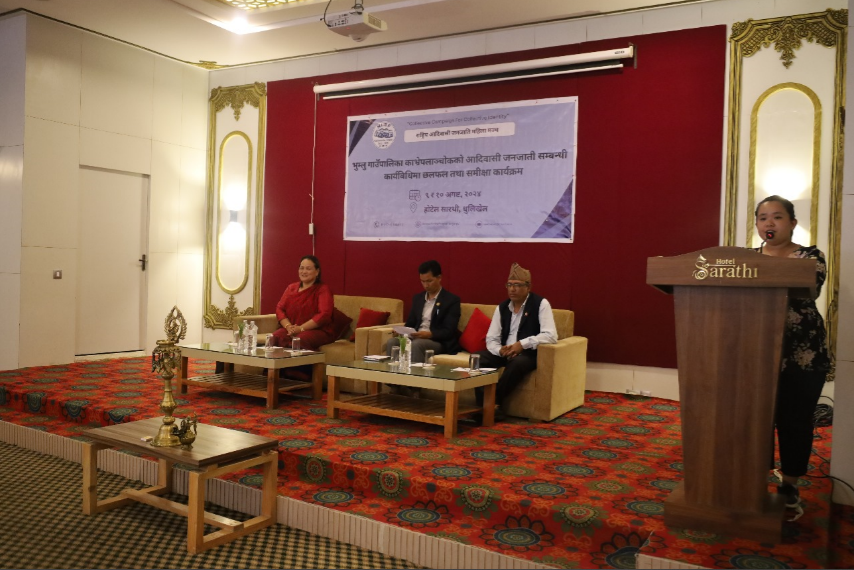
The highlight of the first day was an insightful and comprehensive presentation by Ms. Chanda Thapa, the resource person for the day. Ms. Thapa is renowned for her expertise in the rights of Indigenous women and girls, and her presentation focused on CEDAW General Recommendation 39, which is dedicated to the rights of Indigenous Women and Girls. Ms. Thapa provided a thorough overview of CEDAW General Recommendation 39, explaining its significance in addressing the unique challenges faced by Indigenous women. She emphasized that this recommendation is a powerful tool for advocating for the rights of Indigenous women at both national and local levels. Through her presentation, Ms. Thapa illustrated the key aspects of the recommendation, including the importance of preserving cultural identity, ensuring access to education and healthcare, and protecting Indigenous women from violence and discrimination. To make the recommendation more accessible and actionable, Ms. Thapa discussed various strategies for its effective implementation at the local level. She shared practical examples and case studies that demonstrated how communities could use CEDAW GR 39 to advocate for better protection and empowerment of Indigenous women and girls. The participants were encouraged to integrate these strategies into their local workplans and to become proactive advocates for the rights of Indigenous women in their communities.
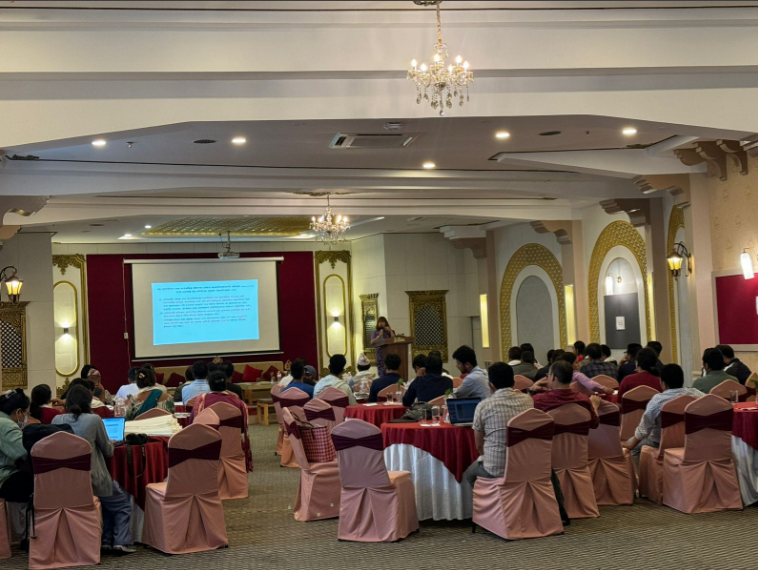
The first day of training also coincided with the International Day of the World’s Indigenous Peoples, adding a layer of significance to the event. To honor this important day, a solidarity dinner was organized, bringing together all the participants in a spirit of celebration and unity. The dinner provided an opportunity for everyone to reflect on the day's discussions, share their experiences, and build stronger bonds as they continued to work towards the common goal of advancing the rights of Indigenous peoples. The evening was filled with conversations, cultural exchanges, and a shared sense of purpose, making it a memorable conclusion to a day dedicated to learning, empowerment, and solidarity.
On August 5, 2024, the National Indigenous Women Forum (NIWF) presented their Position Paper to the Chautara Sangachokgadhi Municipality in a formal ceremony. The handover was spearheaded by NIWF's Chairperson, Ms. Suni Lama, with the support of Treasurer Ms. Sushila Gole, Sachita Tamang, and other dedicated members of the forum. Together, they presented the document to Acting Mayor, Ms. Sita Thapa. 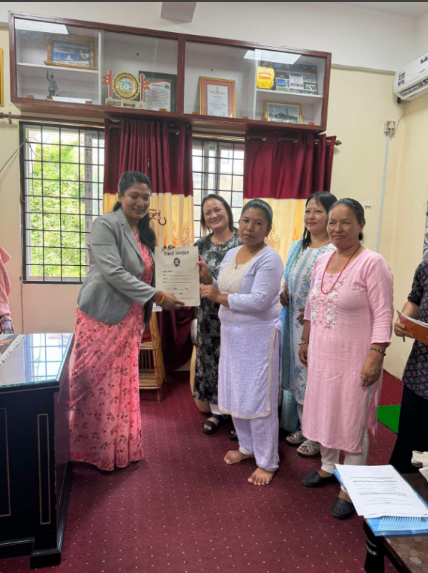
During the event, Ms. Suni Lama delivered a speech highlighting NIWF's unwavering dedication to supporting Indigenous women who have returned from foreign employment. She stressed the importance of income generation, as well as family and social rehabilitation, for these women. Ms. Lama called on the municipality to implement proactive measures that would connect these women with viable income-generating opportunities, ensuring their economic stability and social integration. The program was facilitated by Sabnam Lama, who ensured the smooth flow of the proceedings. Additionally, Savita Tamang eloquently read the statement from the Position Paper, outlining the key points and recommendations proposed by NIWF.
On July 31, 2024, the National Indigenous Women Forum (NIWF) hosted a reception dinner with Q’apaj Conde, Associate Programme Management Officer at UN Biodiversity and Co-chair of the Global Indigenous Youth Caucus. The event celebrated the visit of the Convention on Biological Diversity (CBD) Secretariat Team and the High Ambition Coalition (HAC) Team to Nepal, who were in the country for a regional capacity-building workshop titled "Achieving Target 3: Beyond Boundaries." The workshop was held over two and a half days at ICIMOD, Khumaltar.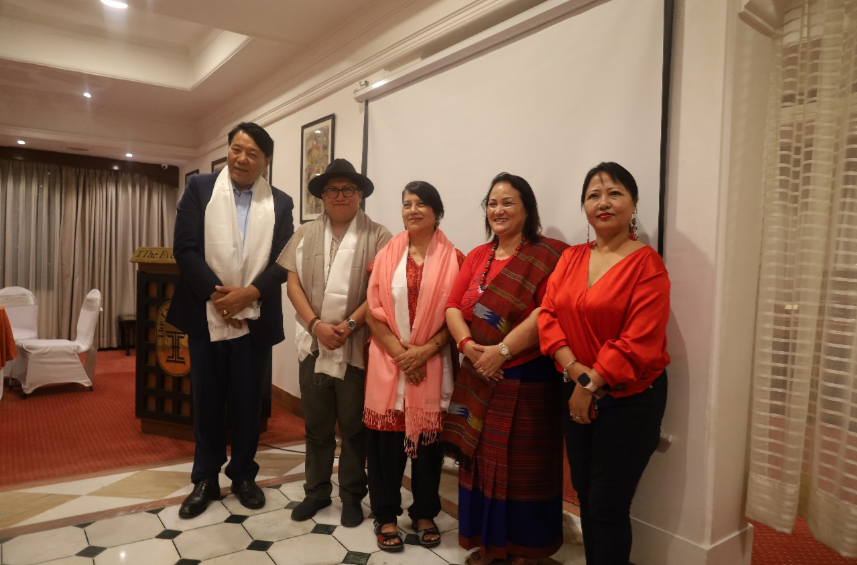
Distinguished guests at the reception dinner included Hon. Chair Ram Bahadur Thapa of the Indigenous Nationalities Commission, Hon. Chair Bishnu Prasad Chaudhary of the Tharu Commission, Vijay Singh, Assistant Country Director of UNDP, Ghana Shyam Gurung, Country Representative of WWF, Gelje Sherpa, Chair of the Nepal Federation of Indigenous Nationalities (NEFIN), Diwas Rai, Buddha Ghartee Vice Chair of NEFIN, General Secretary of NEFIN, Sangeeta Lama, Chair of Sankalpa, Ek Raj Sigdel of WWF, Barsha Lekhi, I.E Specialist of UNESCO, Bijendra Basnyat of UNDP, Vivek Sharma of GEF-SGP, Kumar Yatru, Producer of Indigenous Television, Dhani Ram Tharu of Tharu Aayog, Kamal Sampang Rai of NIFB, Bishwas Chepang, Program Coordinator of CIPRED.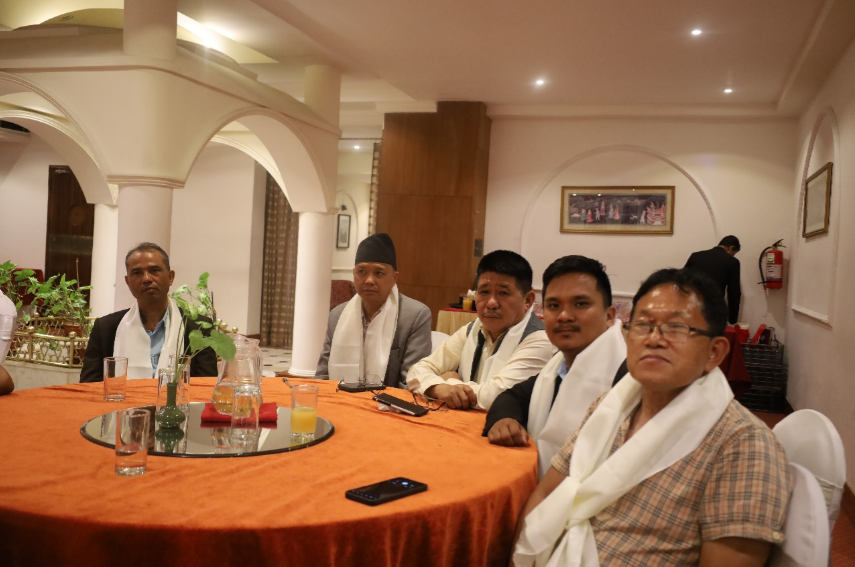
The reception dinner was facilitated by NIWF's Program Officer, Ms. Saraswati Sherpa. During the event, Mr. Kamal Sampang Rai presented on the development of the National Biodiversity Strategy and Action Plan (NBSAP) in Nepal. Hon. Chair Ram Bahadur Thapa discussed the role of Nepali Indigenous Nationalities in biodiversity conservation. Hon. Bishnu Prasad Chaudhary also provided insights on the relationship between Indigenous Peoples (IPs) and biodiversity. Mr. Ghana Shyam Gurung shared his perspectives on biodiversity, and Mr. Vijay Kumar Singh offered additional insights. Our special guest speaker, Q’apaj Conde, shared valuable insights on Indigenous Peoples and Biodiversity from a global perspective.
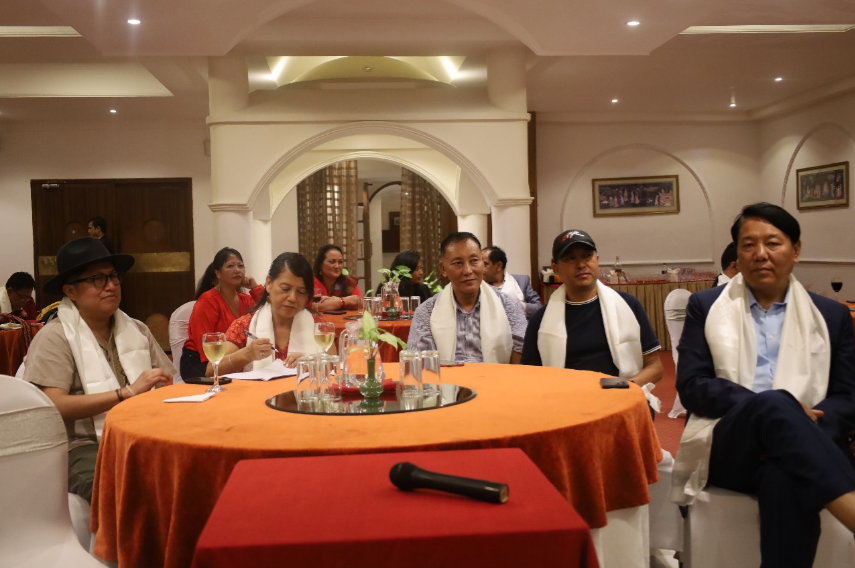
The dinner reception provided an opportunity for key stakeholders, including government officials, representatives from international organizations, and Indigenous leaders, to network and discuss the role of Indigenous Communities in biodiversity conservation. It also served as a platform for sharing knowledge and experiences related to biodiversity and Indigenous issues on both a national and global scale.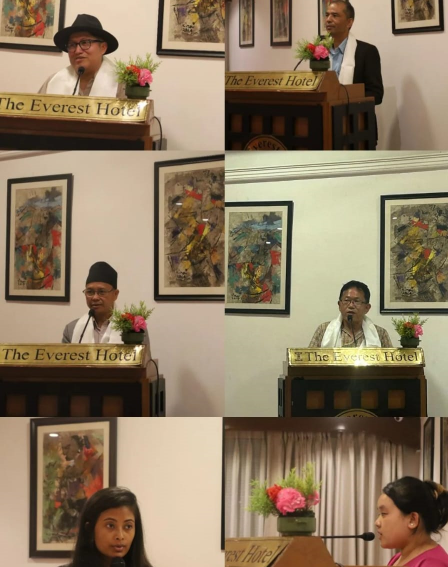
The High Level Political Forum (HLPF) is the main UN platform on sustainable development. The theme for 2024 was ‘Reinforcing the 2030 Agenda for Sustainable Development and eradicating poverty in times of multiple crises: The effective delivery of sustainable, resilient and innovative solutions’. National Indigenous Women Forum (NIWF)'s Chairperson Ms.Suni Lama, Vice-Chair Ms. Yasso Kanti Bhattachan and Member of Gandaki Province Hon. Bimala Gauchan participated at the High Level Political Forum 2024, from 8th July to 18th July 2024 in UN Women Headquarters, New York.
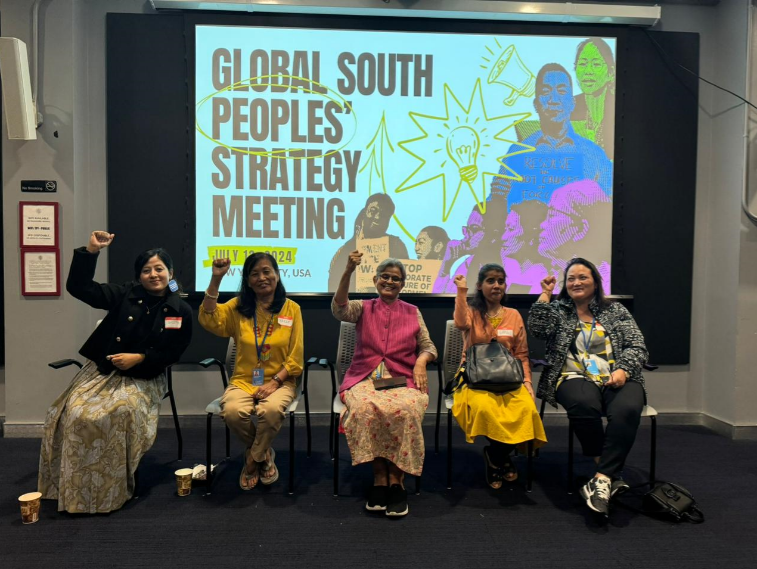
Ms. Yasso Kanti Bhattachan, Vice-Chair of NIWF, was a speaker at the side event titled "Mapping the Path to Feminist Climate Justice: Redefining the Pact of the Future." This side event was organized by Women Engage for a Common Future (WECF), FEMNET, Women Environmental Programme (WEP); Women’s Major Group, WomenPower2030, Asia Pacific Forum on Women, Law and Development(APWLD), La Fundación para Estudio e Investigación de la Mujer (FEIM), GEF Action Coalition on Feminist Action for Climate Justice convened by UN Women.
She provided valuable insights from the perspective of Indigenous Women and offered several recommendations. Ms. Bhattachan emphasized the necessity of addressing intersectionality in any climate action policy, plan, or program. She discussed the significant impact of climate change on Indigenous Peoples in Nepal, highlighting how the livelihoods of Indigenous Women have been adversely affected. Moreover, Ms. Bhattachan pointed out that Indigenous Communities often perceive climate change as a natural phenomenon due to their limited awareness of Sustainable Development Goal 13, the United Nations Framework Convention on Climate Change (UNFCCC), and the Convention on the Elimination of All Forms of Discrimination Against Women (CEDAW) at the grassroots level. This lack of awareness underscores the need for more inclusive and accessible climate education and advocacy efforts.
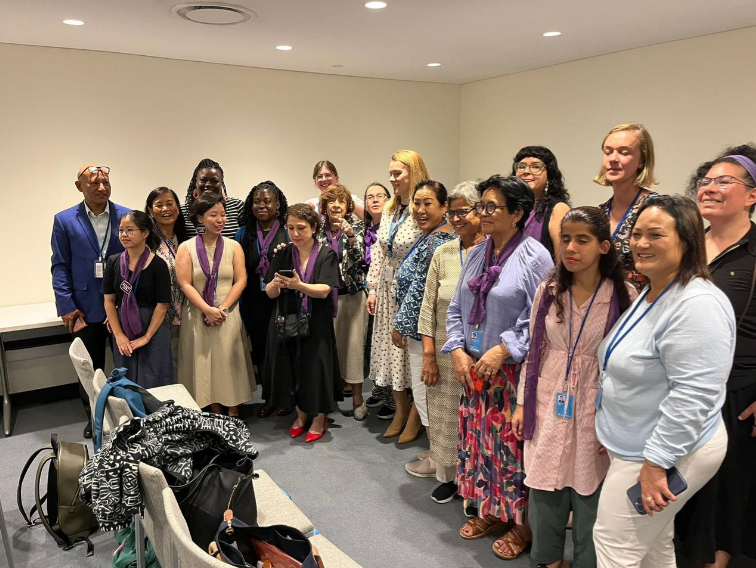
HLPF is a crucial platform for Indigenous People because it ensures their voices are included in global policy discussions, allowing them to influence decisions that impact their Communities directly. HLPF provides opportunity for Indigenous Peoples to influence policy development and build their capacity for effective international advocacy. Overall, the HLPF plays a vital role in ensuring that Indigenous Perspectives are recognized and valued in sustainable development efforts. So it is important for Indigenous People to participate in HLPF.
On June 28th and 29th, 2024, National Indigenous Women Forum (NIWF), in collaboration with Focus for Indigenous Girls (FIG) and supported by MADRE, organized a 2-day workshop on Cyber Security for young Indigenous Women and Girls at Itahiti-5 Chhampi, Godawari. The workshop specifically targeted Pahari and Nagarkoti Indigenous Girls. NIWF's Chairperson, Ms. Suni Lama, and Treasurer, Ms. Sushila Gole, also attended the program to share their insights on cyber security. The workshop was facilitated by Ms. kabita bahing, an Indigenous feminist storyteller, and Ms. Dikshya Khadgi.
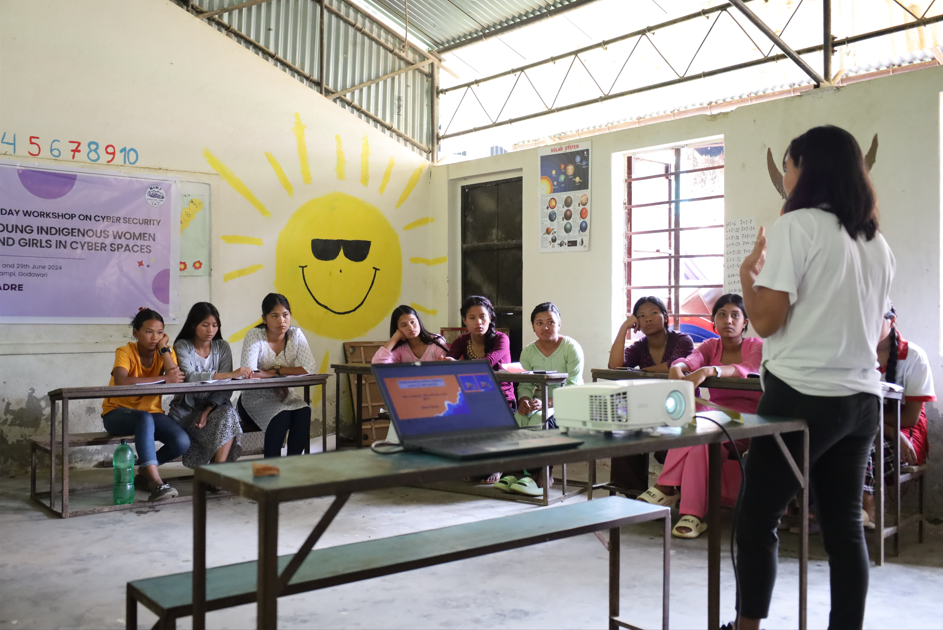 Photo Description: kabita bahing giving presentation on Cyber Security
Photo Description: kabita bahing giving presentation on Cyber Security
Day 1: The workshop began with a Mandala Workshop utilizing visual storytelling to explore Indigenous identity by examining concepts of “Intersectionality, Indigeneity, and Indigenous Girls from marginalized Indigenous communities.” Bandana Pahari, the Treasurer of FIG, discussed the current context of the Pahari Community and highlighted key issues. The interaction of marginalized Indigenous identities on the internet was examined, along with the online experiences of Indigenous Women and Girls, associated risks, marginalization, and safety concerns. Participants mapped digital risks specific to Indigenous Girls. The day concluded with assignments on how to safely interact online and identify appropriate online interactions.
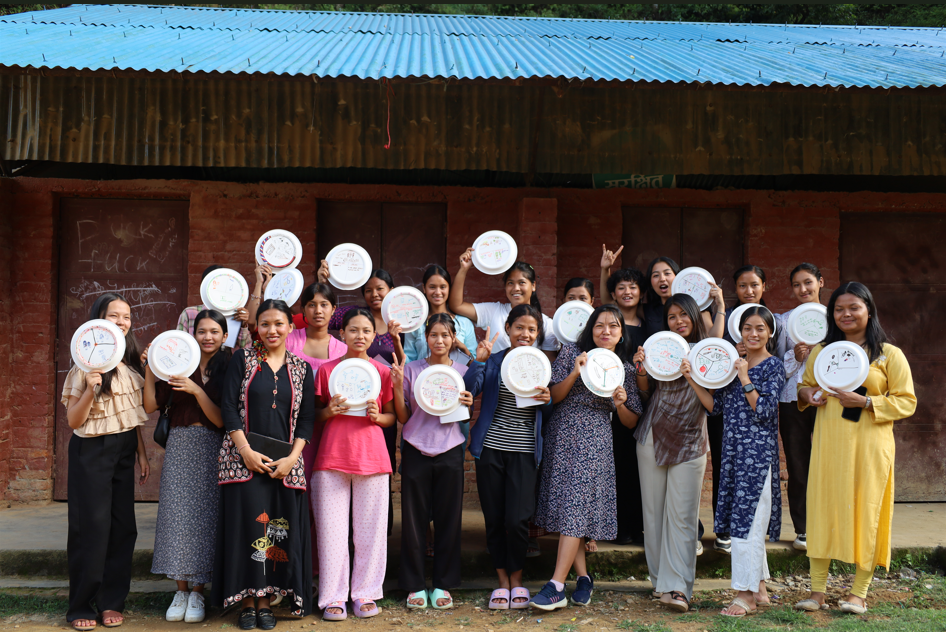 Photo Description: Group Photo with their Mandala Art work
Photo Description: Group Photo with their Mandala Art work
Day 2: The second day began with the "Flights of Care" session, focusing on identifying online violence through mapping participants' online experiences. Ms. Dikshya Khadgi, a lawyer, discussed cybersecurity and the legal provisions and policies in Nepal that address online violence. This was followed by an in-depth exploration of the concept and root causes of online violence by Ms. kabita bahing, highlighting the gaps in understanding these issues. The "Hacking Hate" session involved mapping and developing strategies to respond to online violence and threats. This included an introduction to "Hacking Hate," building responses, and creating strategies to ensure online safety at both personal and community levels. The workshop concluded with a visualization of digital safety practices and a summarization and evaluation of the workshop. Certificates were awarded to participants, and the closing remarks were delivered by Ms. Bandana Pahari, Treasure of FIG.
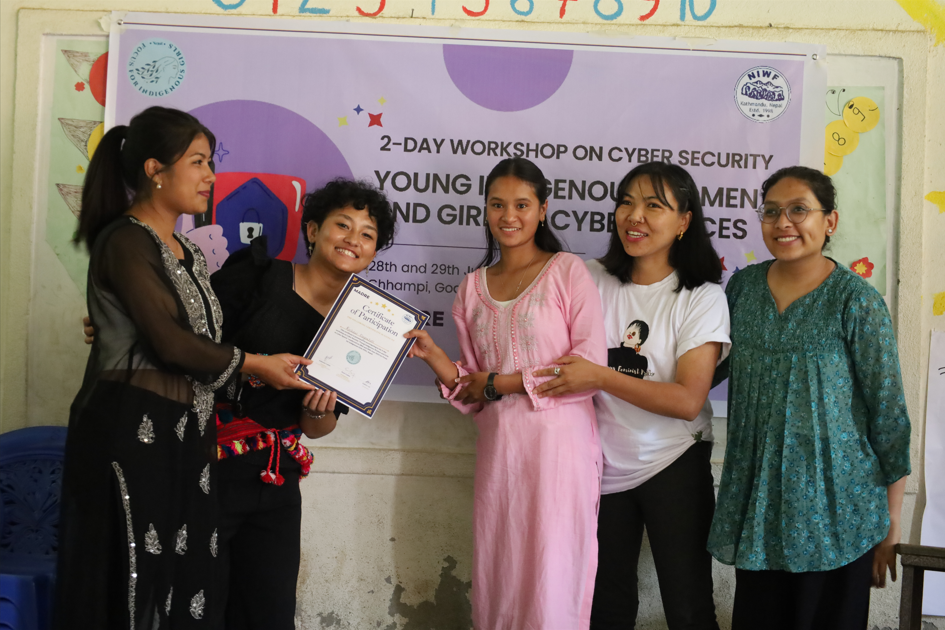 Photo Description: Participant being handed certificate for their participation in the workshop
Photo Description: Participant being handed certificate for their participation in the workshop
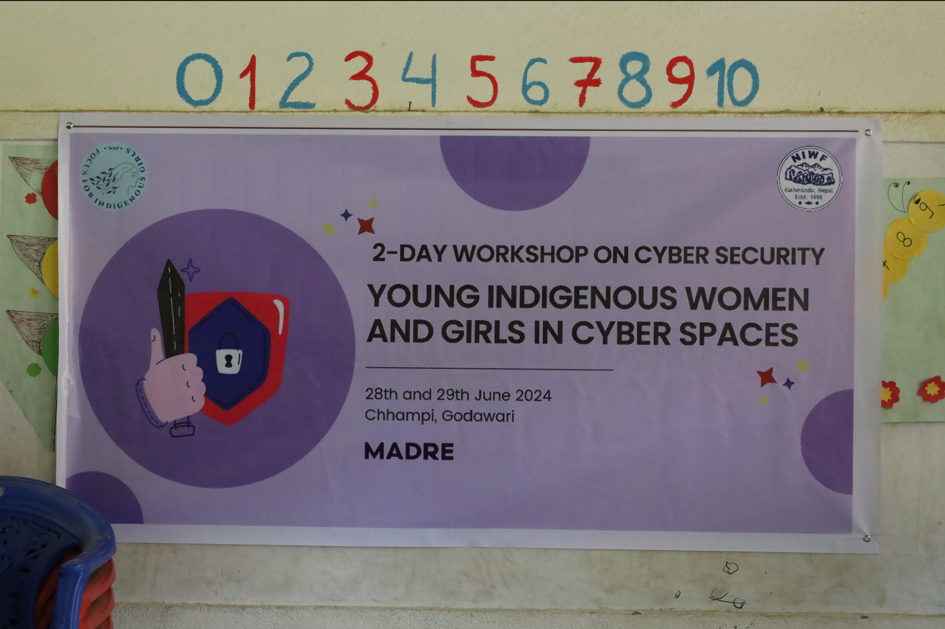 Photo Description: Banner of the 2-Day Workshop
Photo Description: Banner of the 2-Day Workshop
